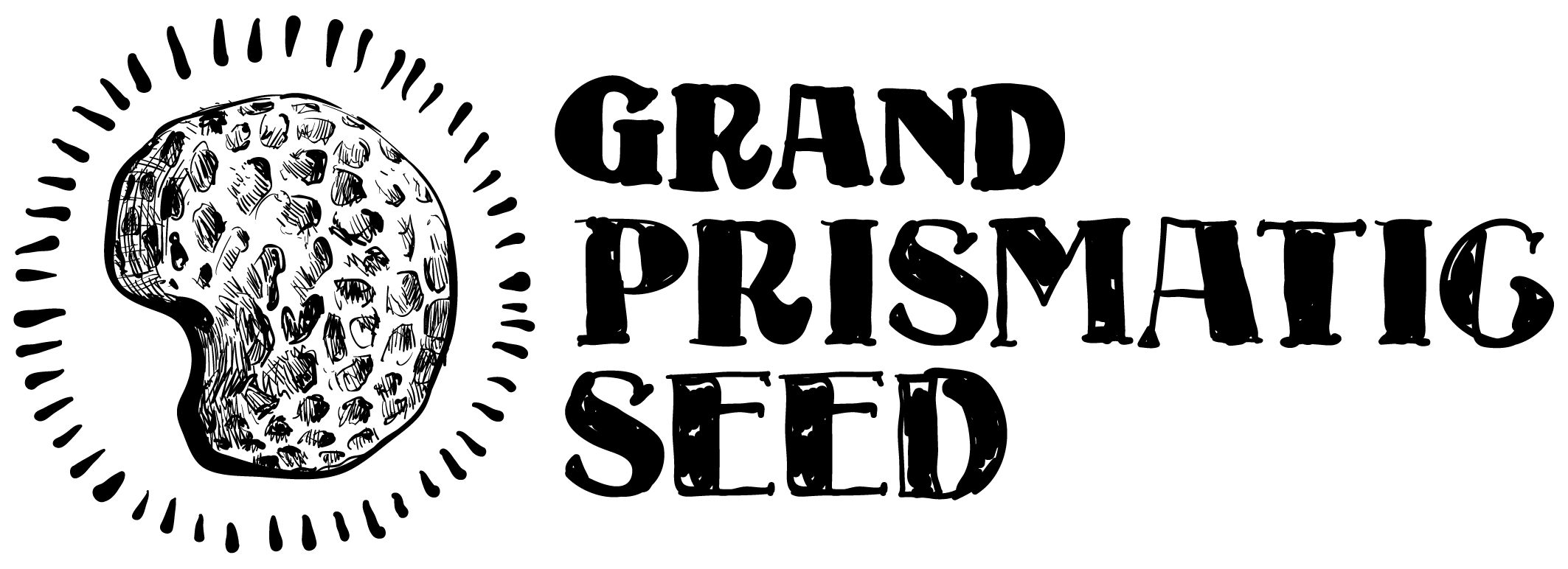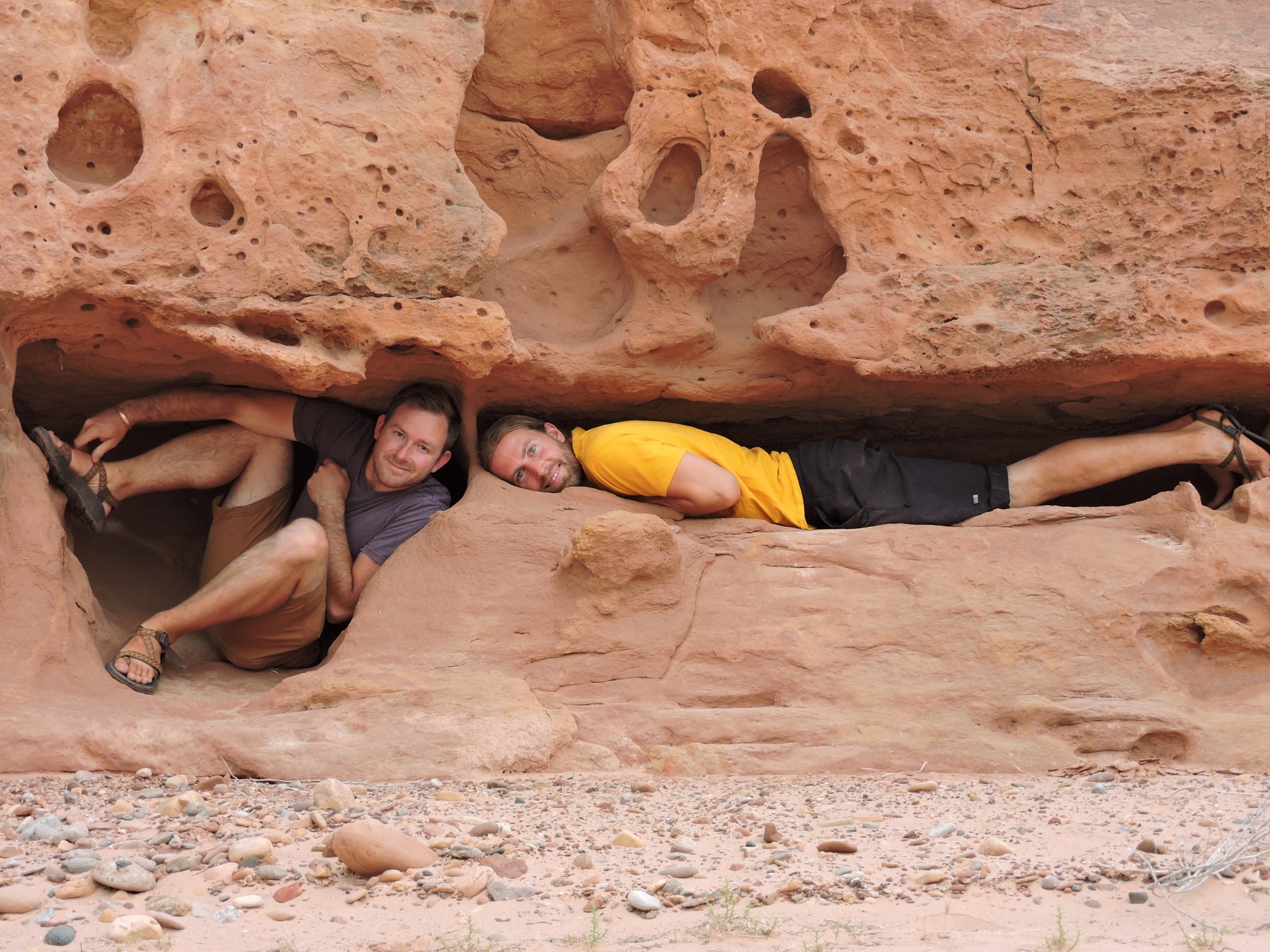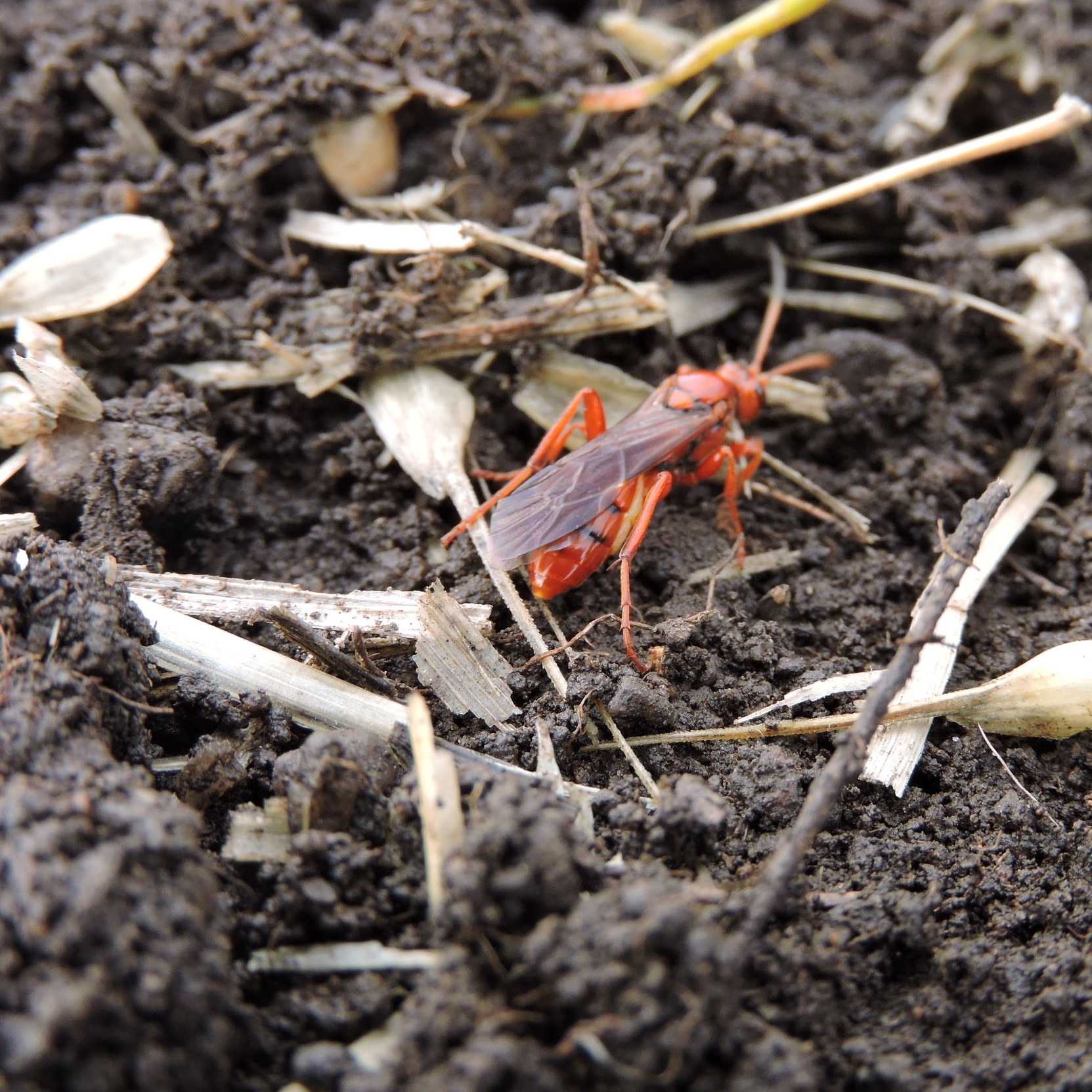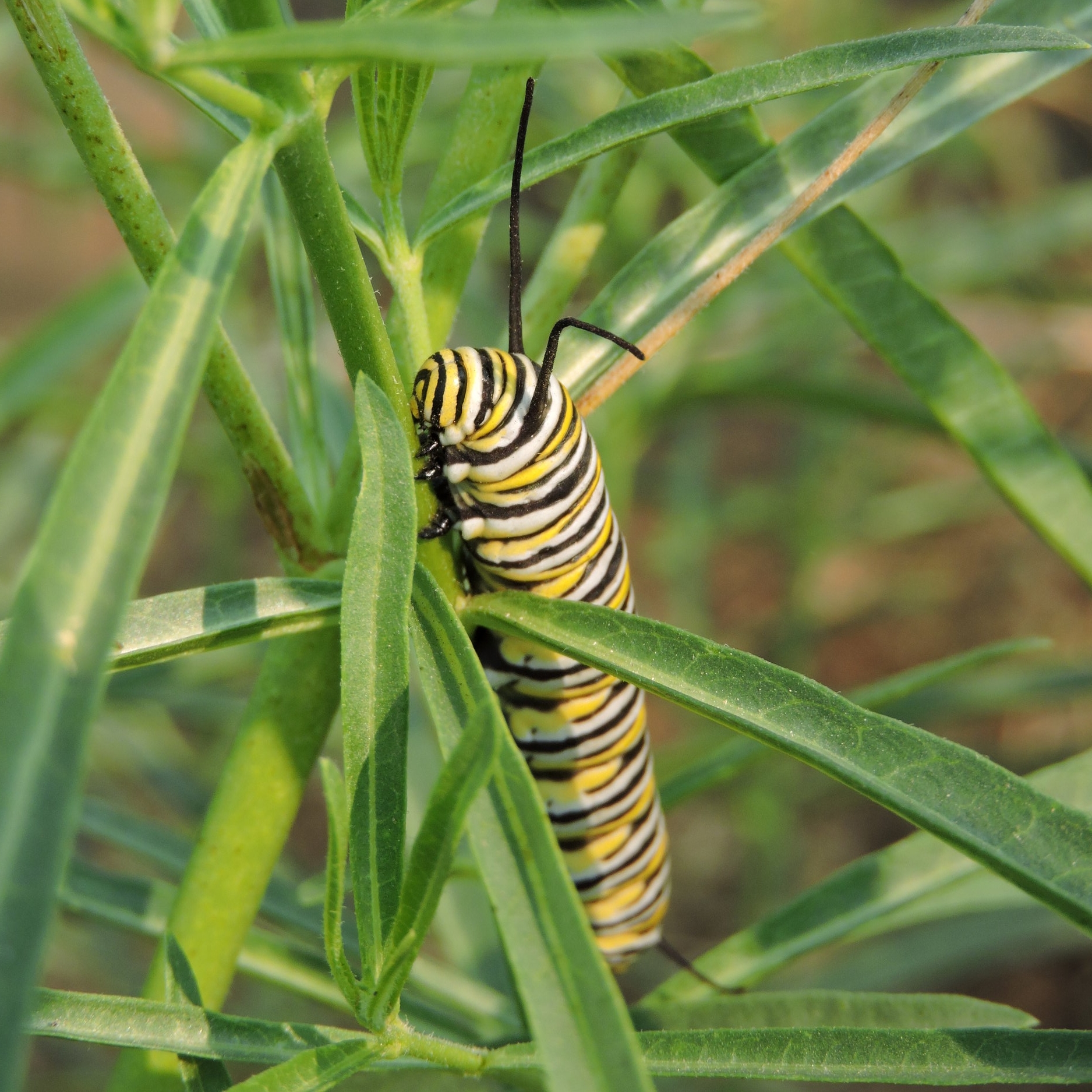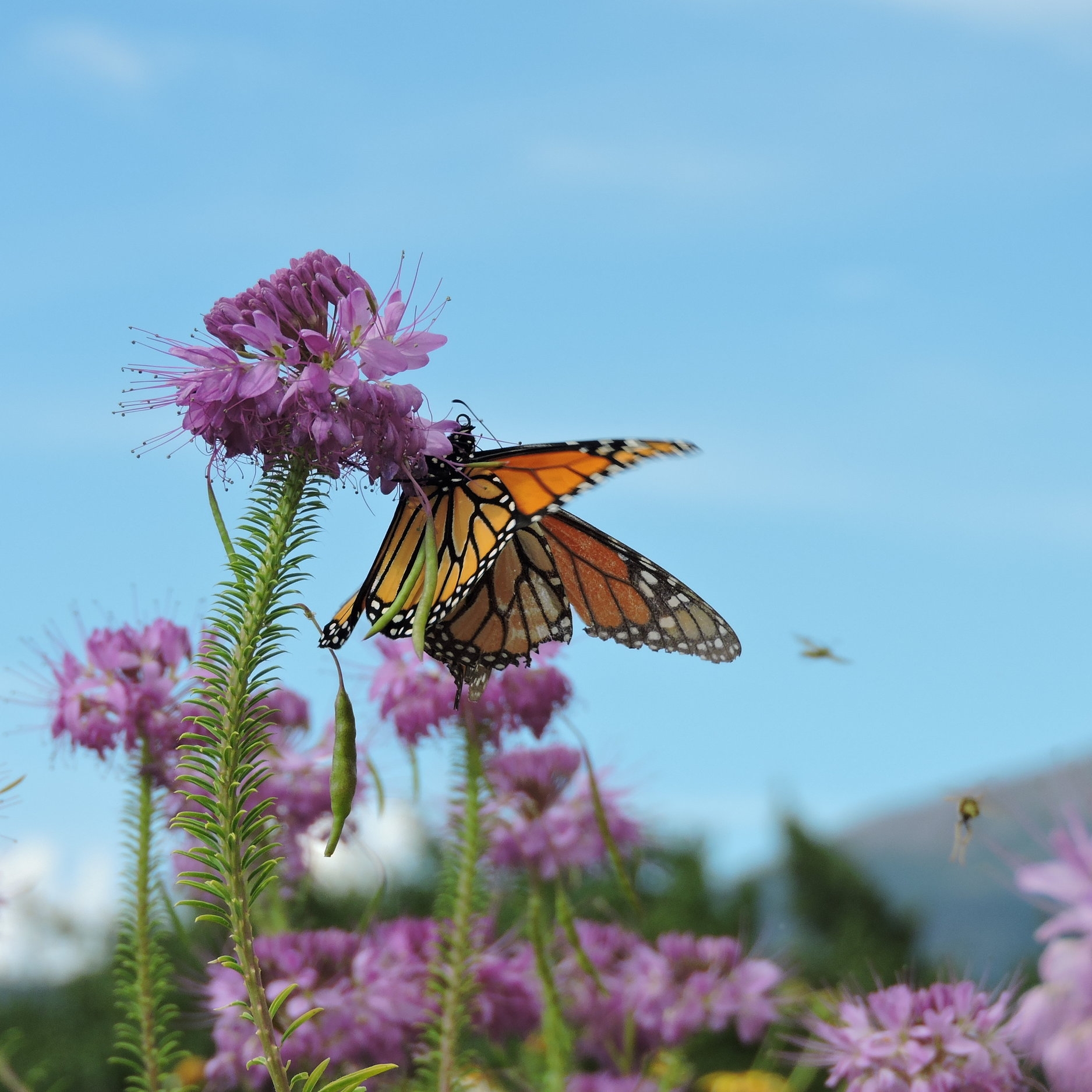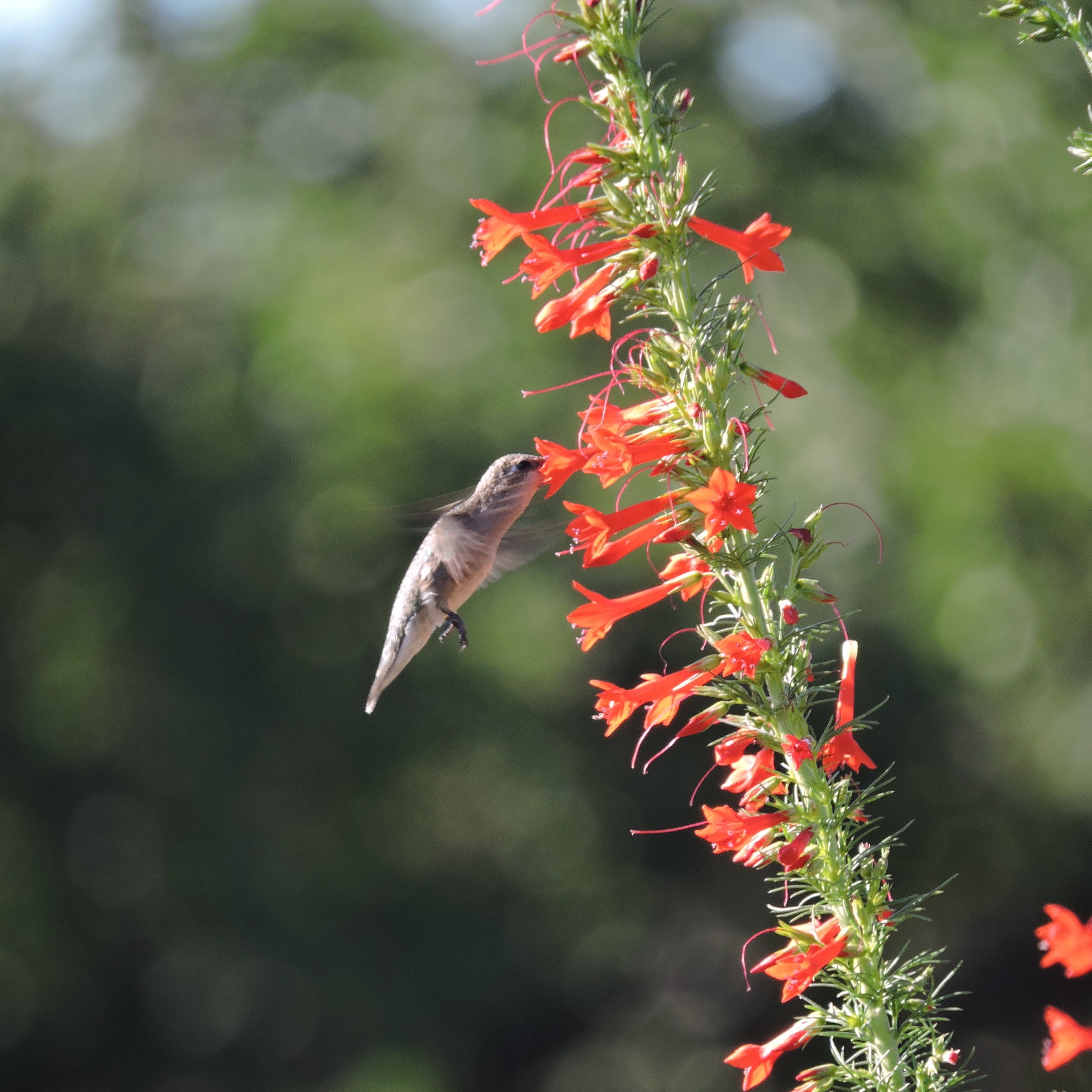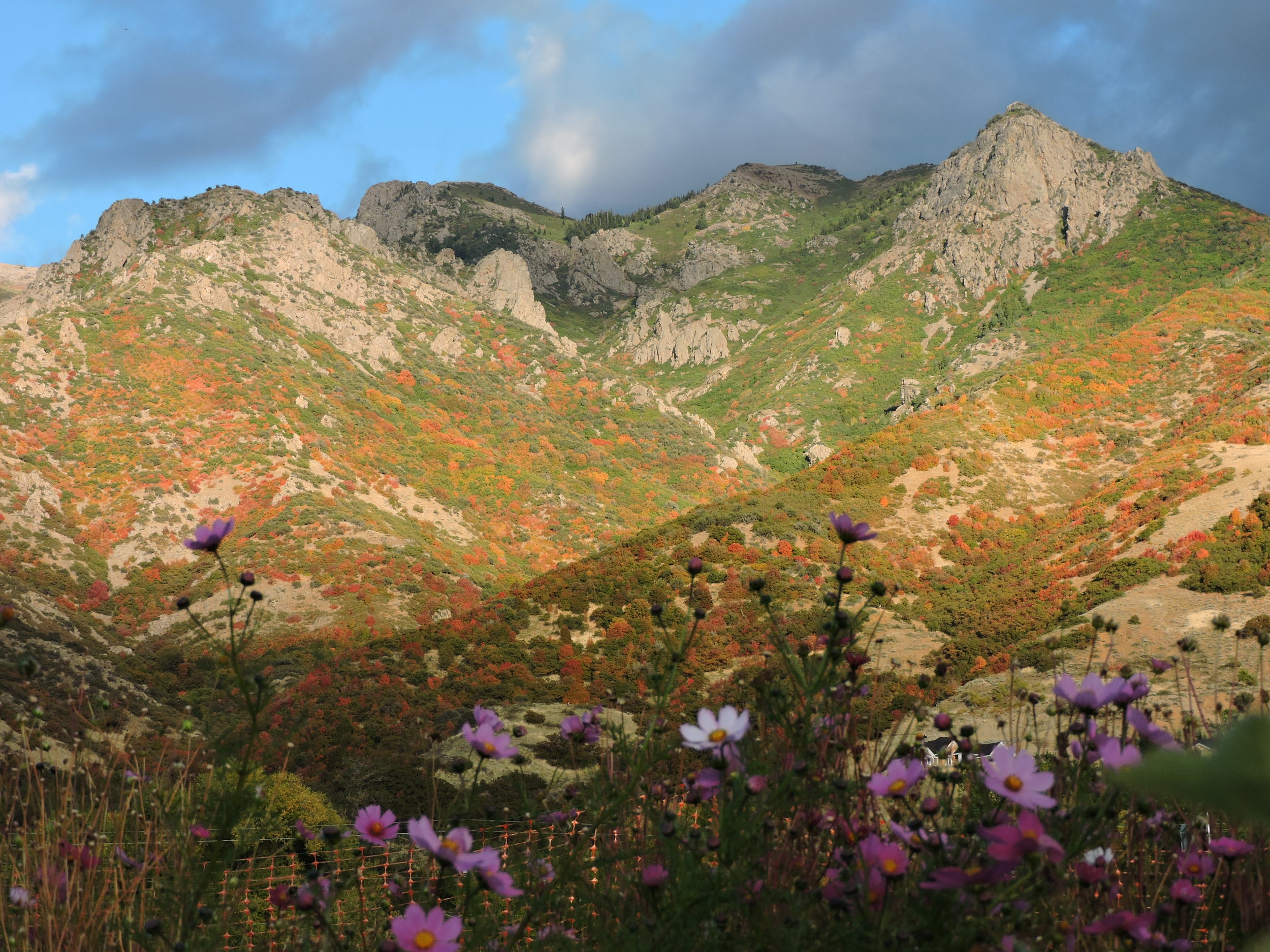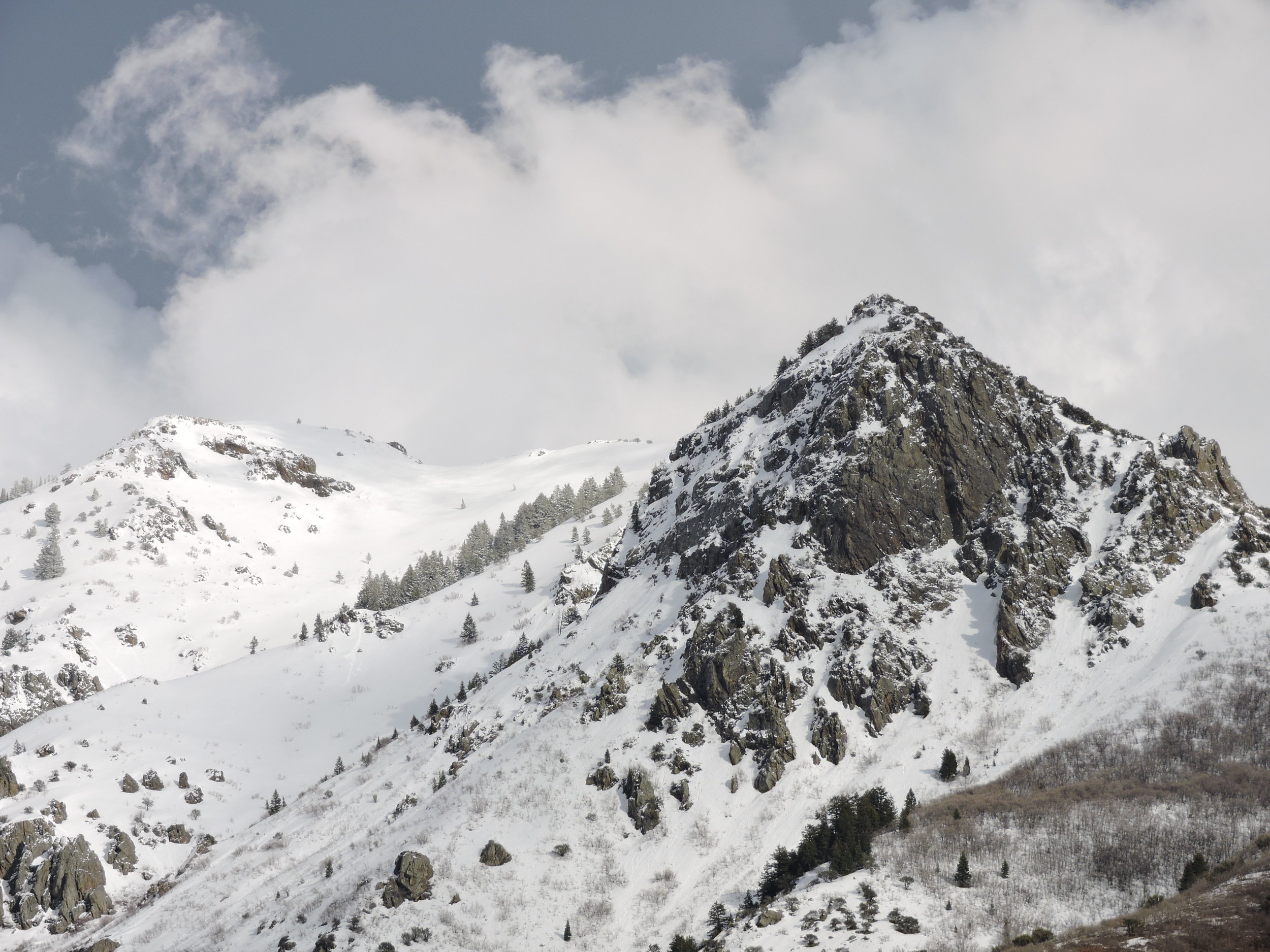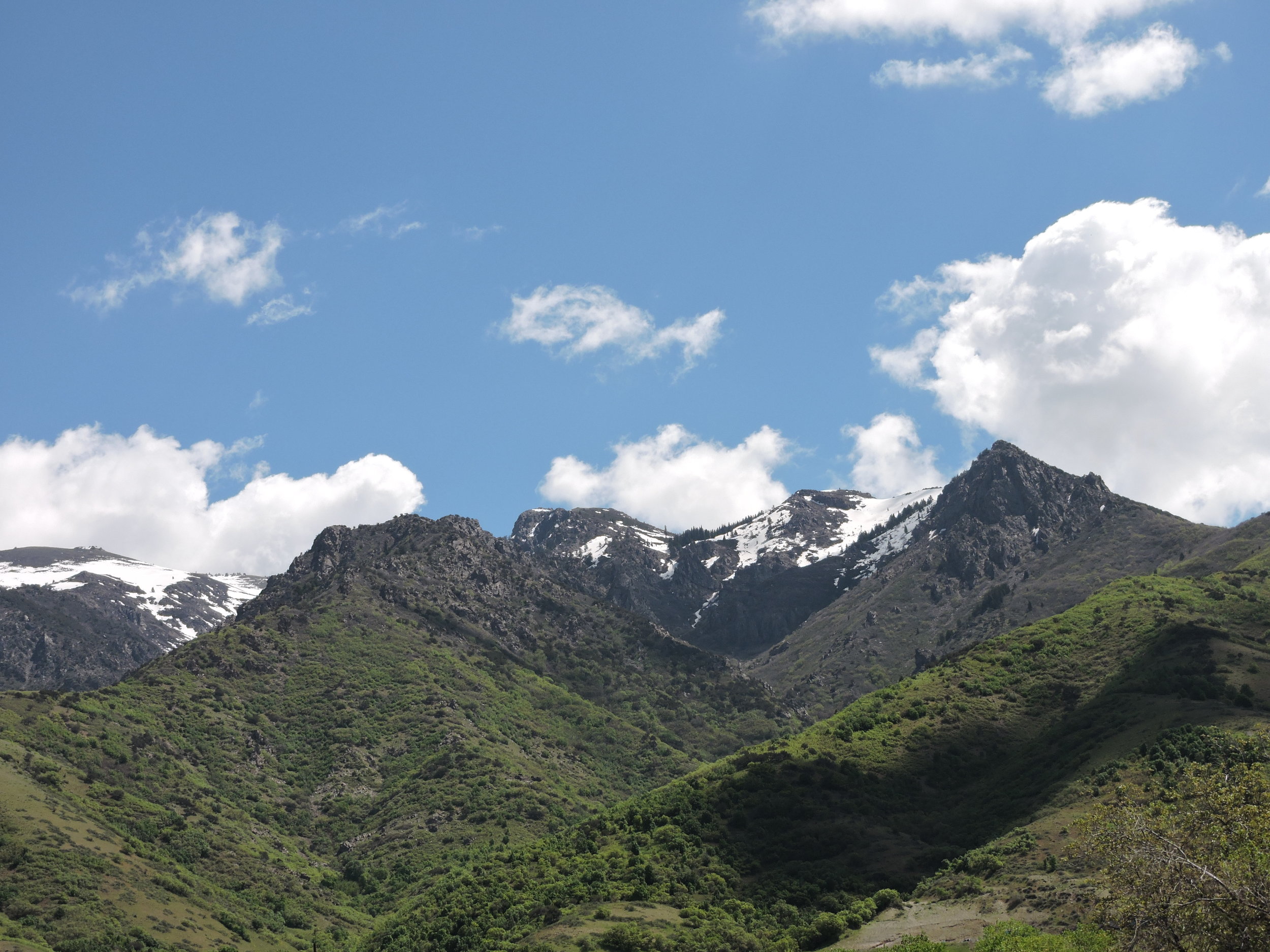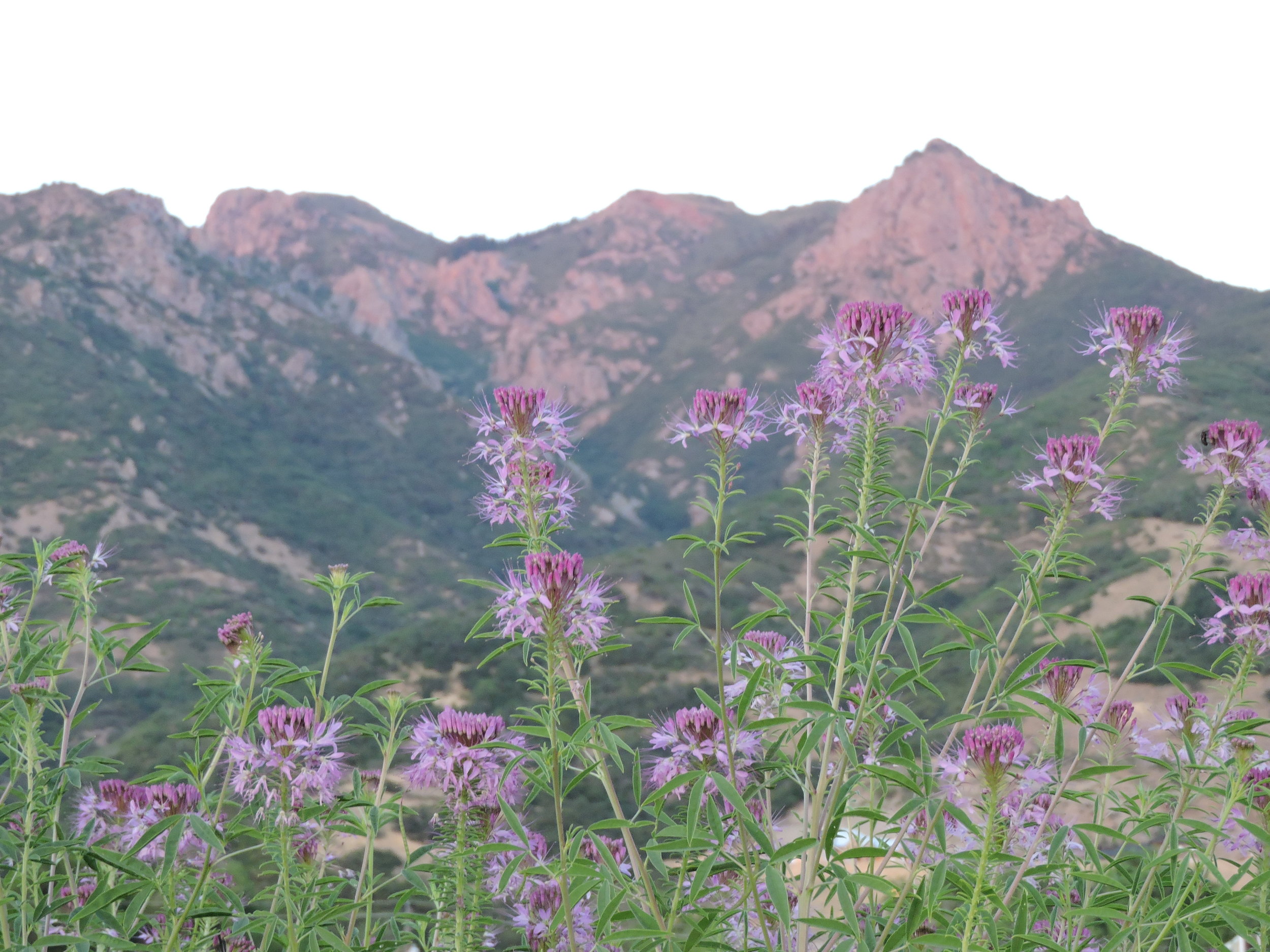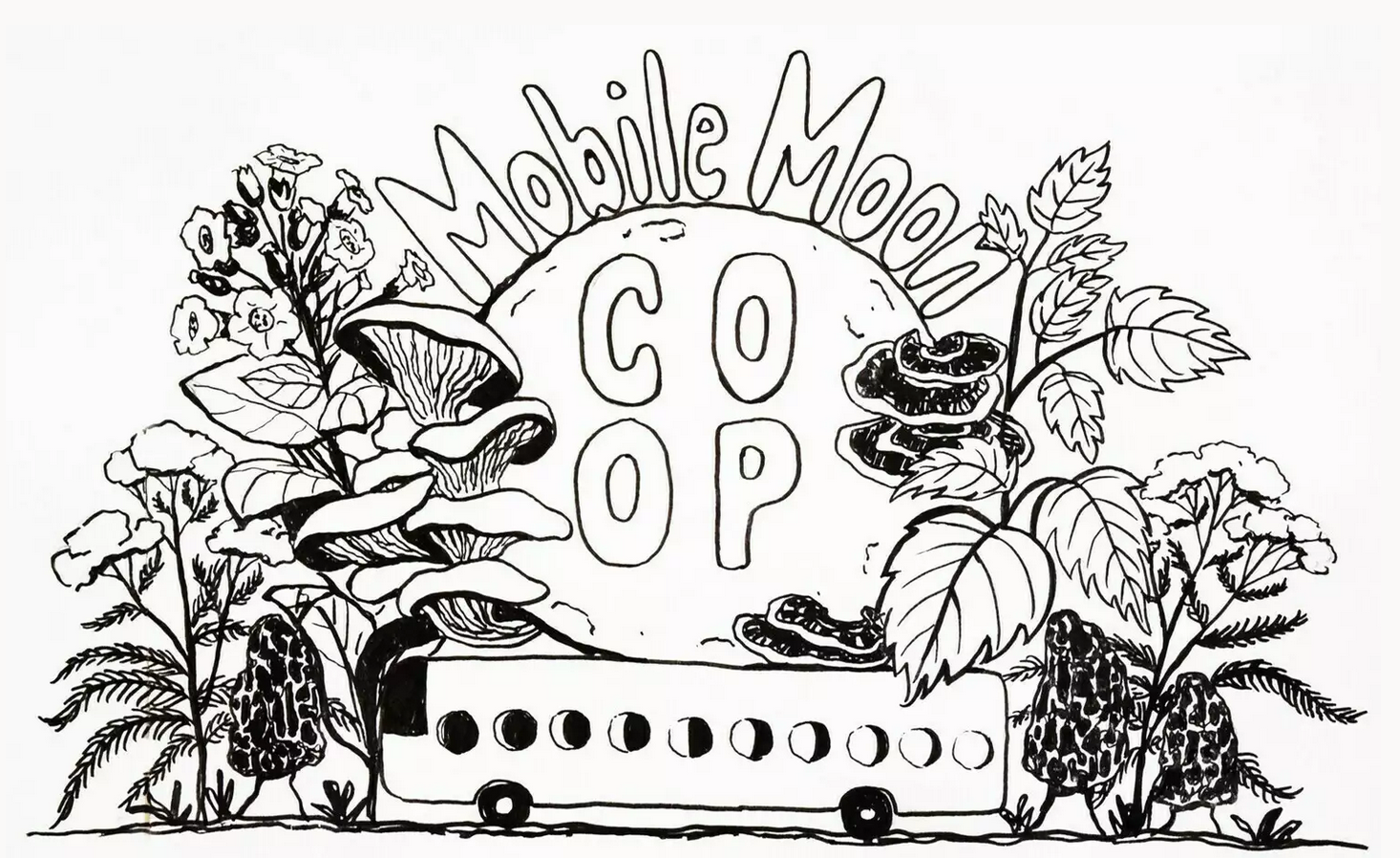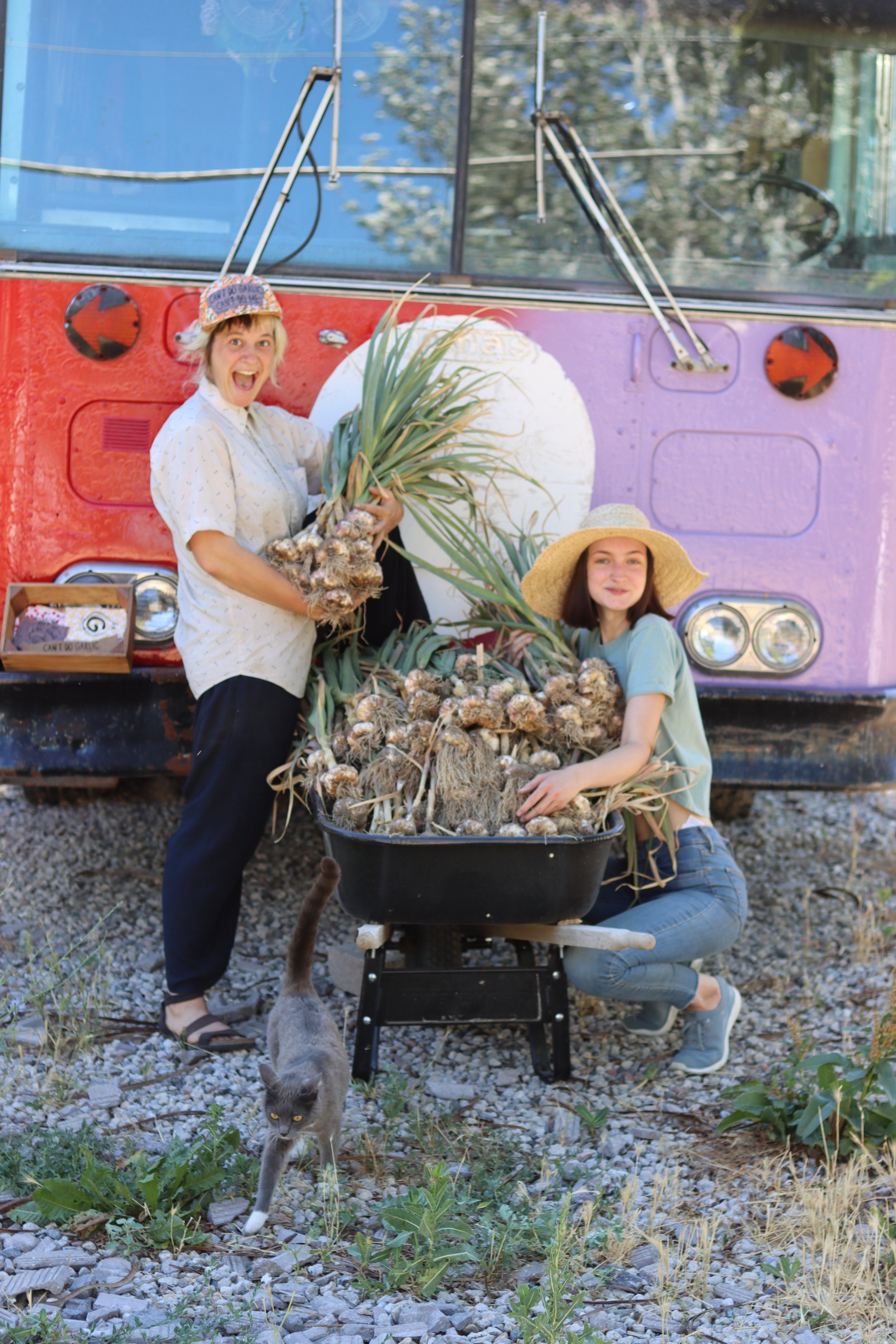From our small, high-desert farm to your garden, our seeds are non-GMO, untreated, patent-free, and grown with care without synthetic fertilizers or pesticides—just vibrant, resilient, beautiful seeds!
About the Farmers
Guy Banner and James Young are the co-owners and farmers of Grand Prismatic Seed, which is a small seed farm located in Northern Utah. They are committed to growing high-quality open-pollinated seeds that can withstand the stresses associated with high desert crop production. They specialize in growing seeds for dye plants and plants native to their bioregion, and also offer a curated list of seeds for their favorite cut flowers, vegetables, and herbs. All of their offerings are grown using organic methods.
James has a special place in his heart for dye plants. His exploration into the world of natural dyes began in high school when his grandma and sister taught him to knit. After being introduced to fiber arts, he quickly found himself captivated by the process of dyeing. However, it wasn't until he relocated to Oregon in 2011 that his interest in the art and science of natural dyeing evolved into a sustained practice. The gray winters of Western Oregon, a stark contrast to the sunny, snowy winters of Utah, served as the catalyst for James to explore natural dyes on a deeper level. Having a hot, steamy dye pot full of vibrant colored fibers and flowers became his favorite antidote to the dreary winters, and solidified a lifelong love of dyeing.
For James, one of his favorite aspects of natural dyeing lies in the connection to place he feels when coaxing colors from home-grown or locally foraged plants. Each dyed piece represents a moment in time and comes from a beloved place. Over the past decade, a substantial portion of his time has been devoted to carefully cultivating dye plants for seeds, with the goal of equipping fellow fiber enthusiasts with the means to nurture their own dye gardens.
Guy Banner's extensive background in botany and horticulture includes ethnobotany, habitat restoration, agroecology, native seed production, and low-water ornamental gardening. He has a special affinity for plants native to the western United States.
Farming Practices
All of our practices are organically approved, but we are not currently organically certified. Our vegetable varieties are open pollinated (see below). We do not use any chemical fertilizers, pesticides, or herbicides. We are not opposed to using limited plant and mineral based insect deterrents such as fresh tobacco concoctions, clay, and other mild organic substances that repel select insects from certain crops. We rely on decaying mulch, nitrogen fixing plants, organic compost, and limited use of organic fish emulsion to feed our crops and soil.
Open Pollinated Seeds
We believe a cornerstone of food sovereignty is the ability of farmers and gardeners to save their own seed and adapt varieties to meet the needs of their environment and community. Because of this belief, we grow open pollinated varieties that will produce true-to-type seeds when saved by their new stewards. Open pollinated plants are allowed to naturally pollinate within their variety, while hybrids are formed by controlling the pollination of two inbred lines to create a new uniform variety with specific attributes. If you save seeds from hybrid parents, it's unlikely that their progeny will have the traits you had originally desired, because of this, gardeners and farmers must return to the hybrid growers year after year to re-purchase their seeds.
Our Location
Grand Prismatic Seed’s first home (pictured above) was located on the foothills of the Wasatch Range in Fruit Heights, Utah. Our lease came to an end in 2019 due to the expansion of Highway 89.
After losing our original growing space to the urban sprawl along the Wasatch Front, we were very fortunate to meet Rikki Longino of the Mobile Moon Coop. They reached out to us when they heard that we were looking for more land to grow on, and the Mobile Moon Coop has been our main growing location since 2020.
The Mobile Moon Coop is “a female & queer collective that strives to aid communities & ecosystems through education, empowerment, and botanical stewardship”, and we are so happy to be working alongside them in the work that they do in our community.
We are also growing more crops each year at Top Crops Farm near downtown Salt Lake City alongside our friends Manda and Elliott. Having multiple locations has been important in order to isolate different varieties of the same species from one another.
Our region’s climate is characterized by hot dry summers and snowy winters. We often receive early and late frosts, which helps us to select for varieties that are cold hardy. One of our goals is to adapt open-pollinated varieties to the extremes we experience at the confluence of the Great Basin and Rocky Mountains.
(Pictured below are Rikki Longino of the MMC on the left, and our 2021 intern Annika Quist on the right)
We are offering a few varieties this year that forward-thinking plant breeders have listed as Open Source Seeds. These varieties will be designated with the OSSI logo (above) in their variety description. The following information is from the OSSI website:
OSSI was created by a group of plant breeders, farmers, seed companies, and sustainability advocates who want to free the seed!
Today, only a handful of companies account for most of the world’s commercial breeding and seed sales. Increasingly, patenting is used to enhance the power and control of these companies over the seeds and the farmers that feed the world.
Patented seeds cannot be saved, replanted, or shared by farmers and gardeners. And because there is no research exemption for patented material, plant breeders at universities and small seed companies cannot use patented seed to create the new crop varieties that should be the foundation of a just and sustainable agriculture.
Inspired by the free and open source software movement that has provided alternatives to proprietary software, OSSI was created to free the seed – to make sure that the genes in at least some seed can never be locked away from use by intellectual property rights.
How OSSI Works:
OSSI works with plant breeders who commit to making one or more of their varieties available exclusively under the OSSI Pledge: You have the freedom to use these OSSI-Pledged seeds in any way you choose. In return, you pledge not to restrict others’ use of these seeds or their derivatives by patents or other means, and to include this Pledge with any transfer of these seeds or their derivatives. This “copyleft” commitment ensures that the Pledge is transmitted with any further distribution of the seed or the seed of any new varieties bred from it. In this way, OSSI preserves the unencumbered exchange of plant germplasm for breeding purposes and guarantees the rights of farmers and gardeners to save and replant seed.
